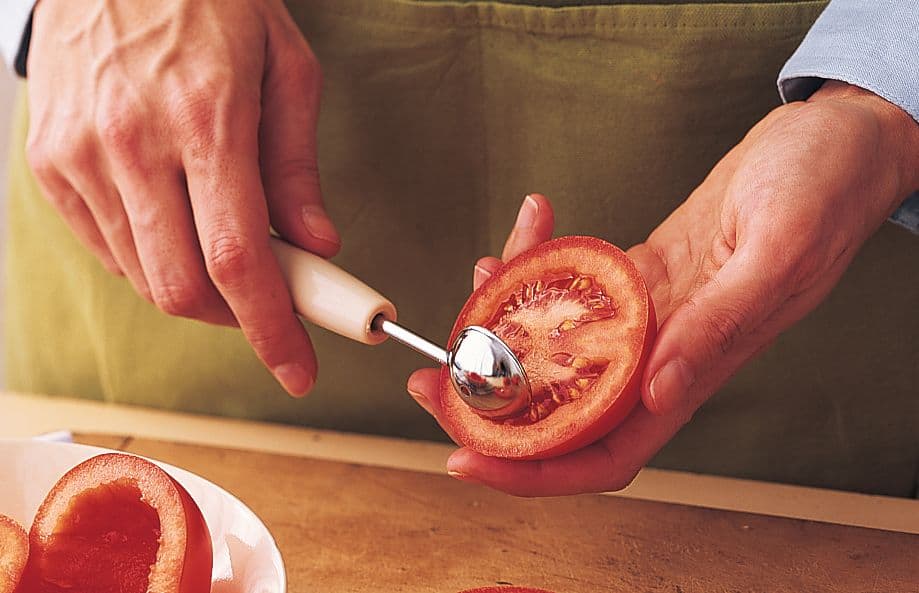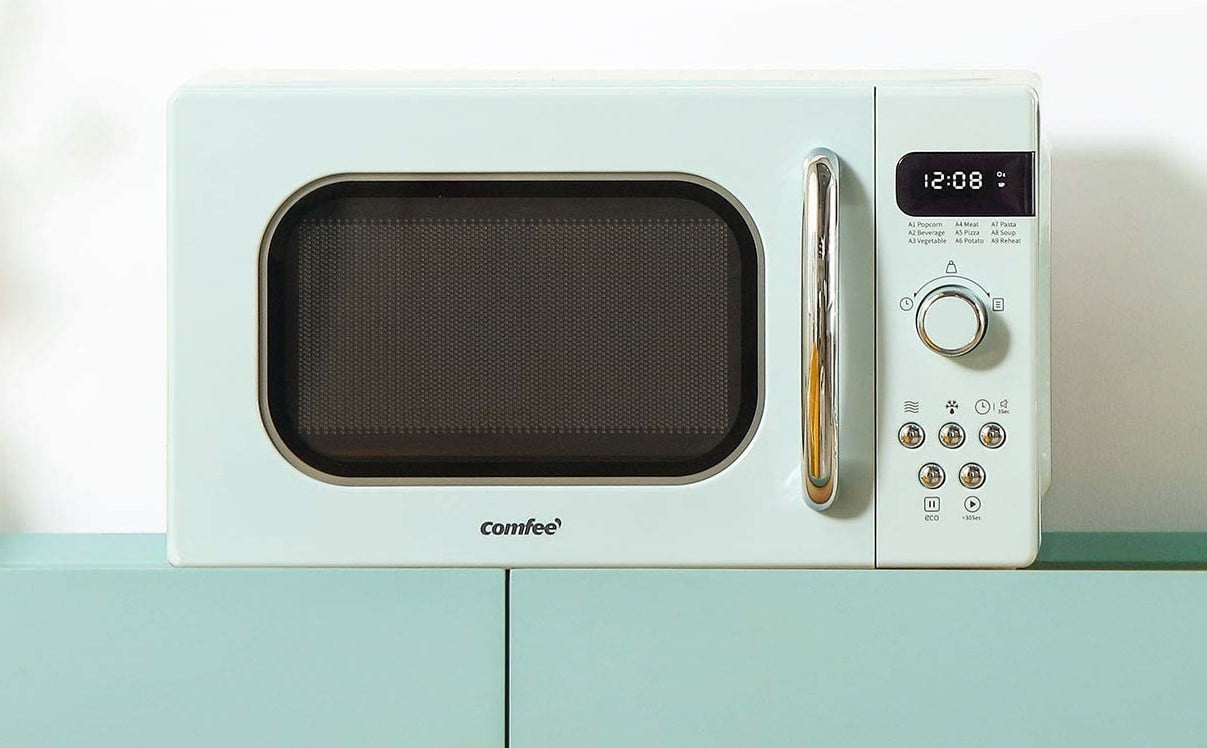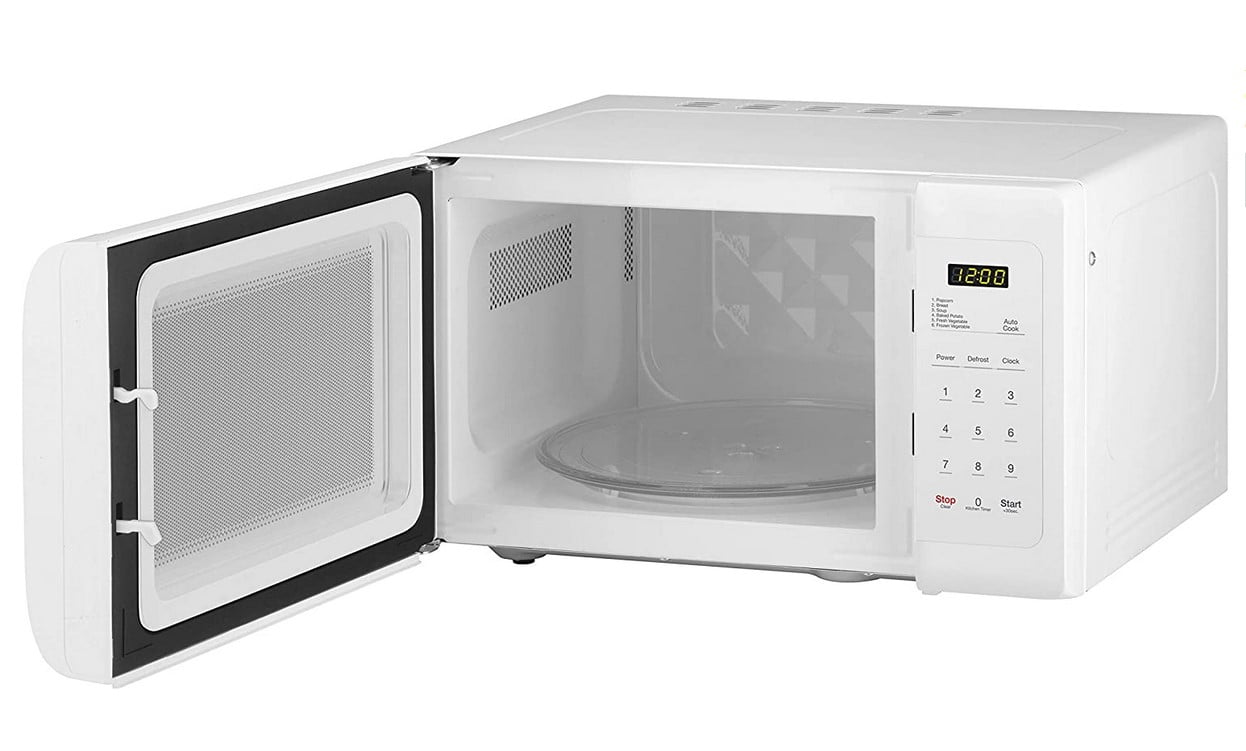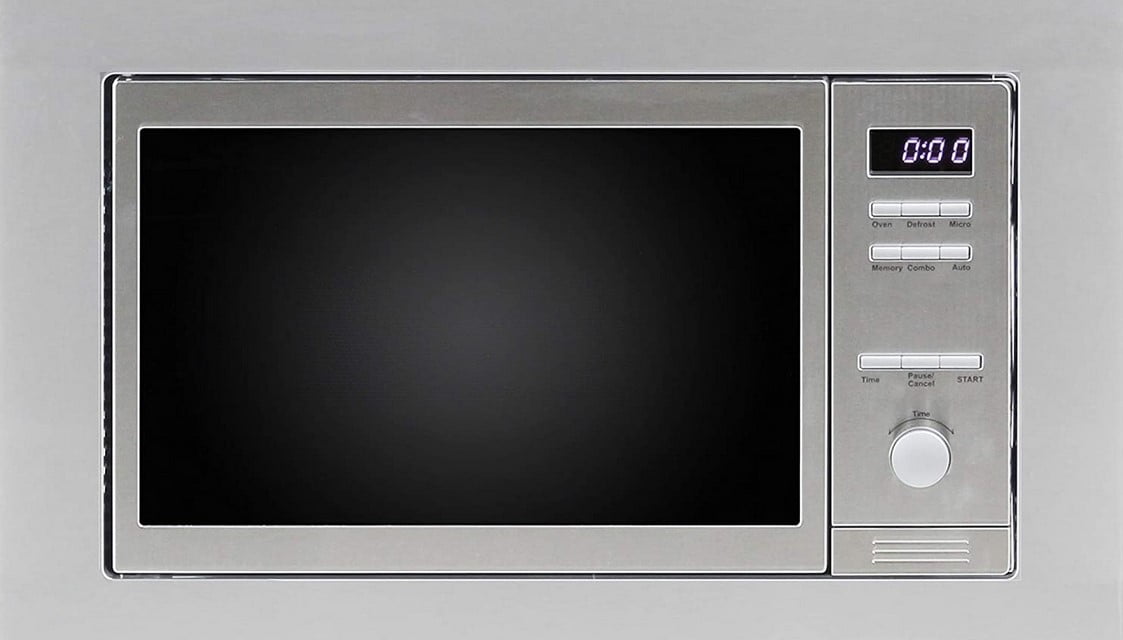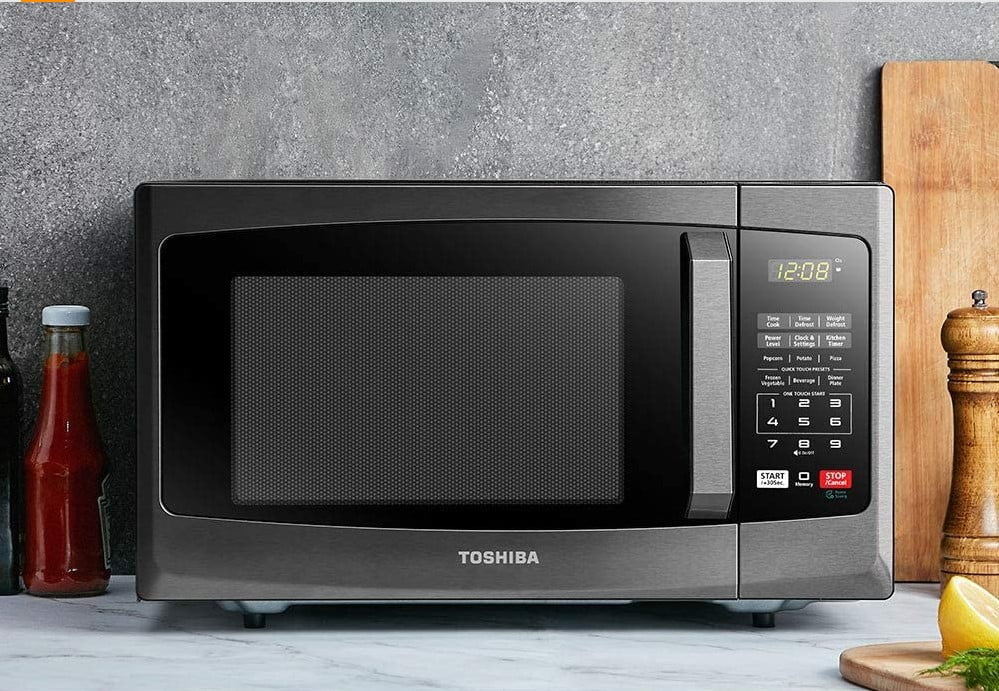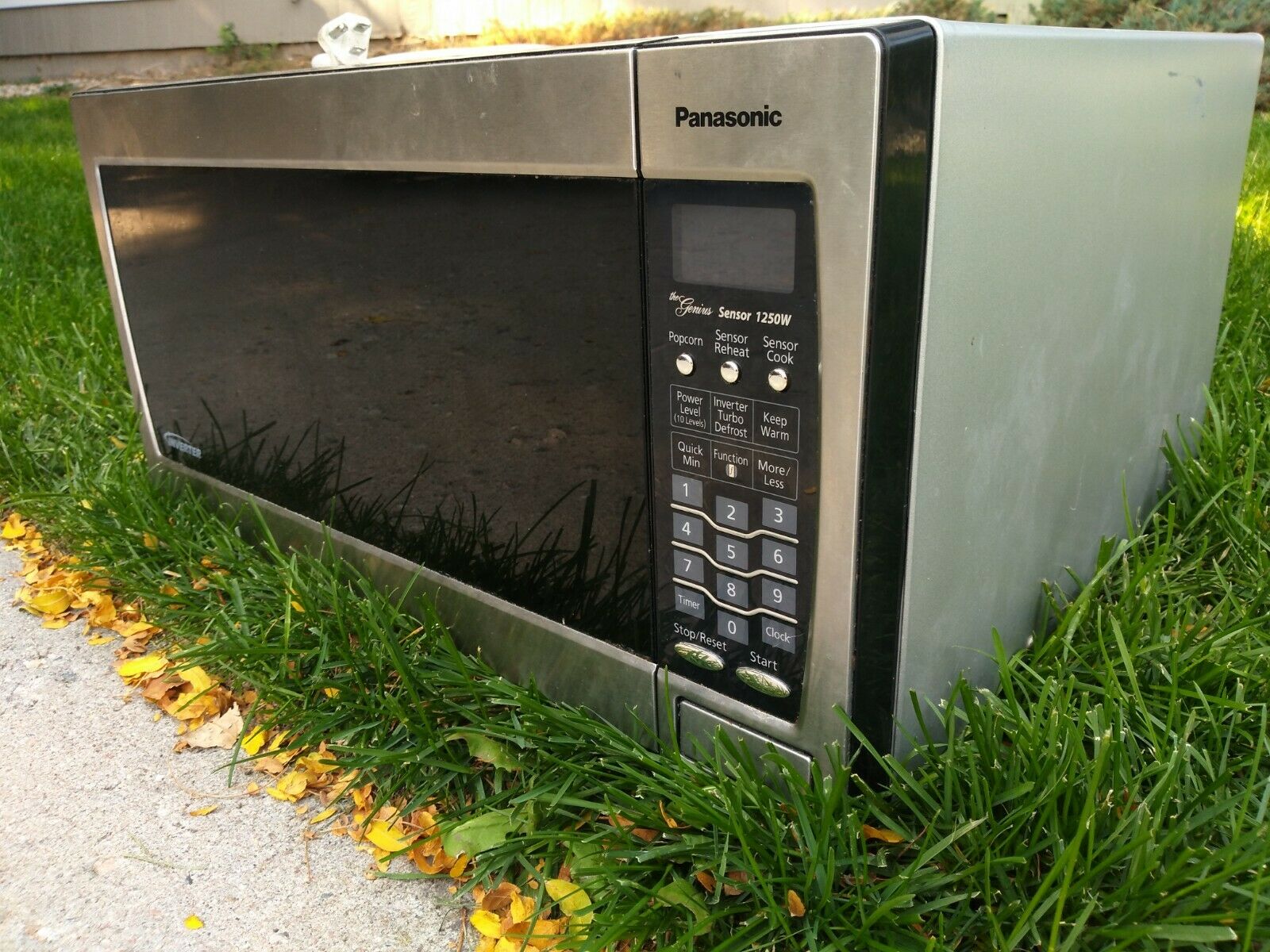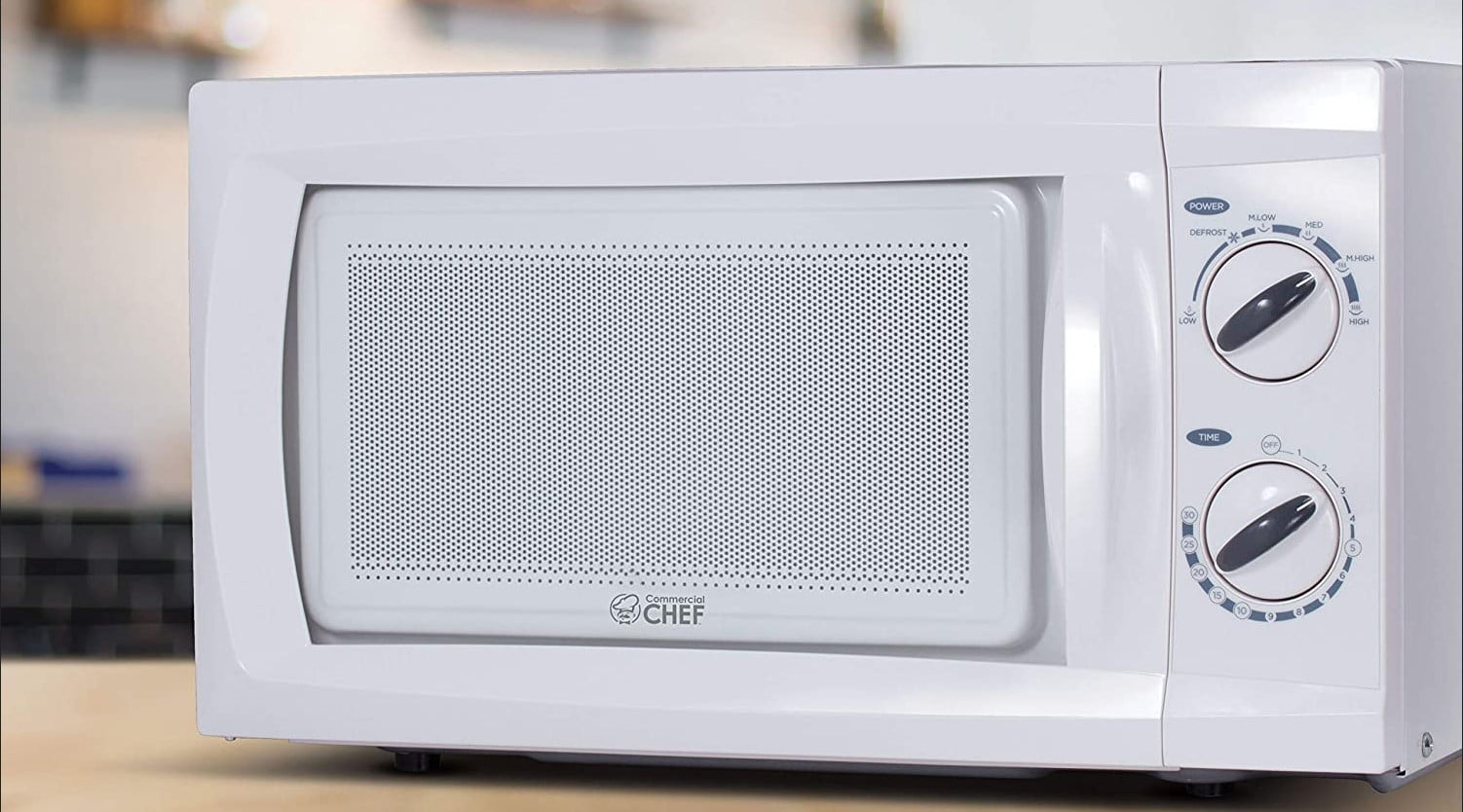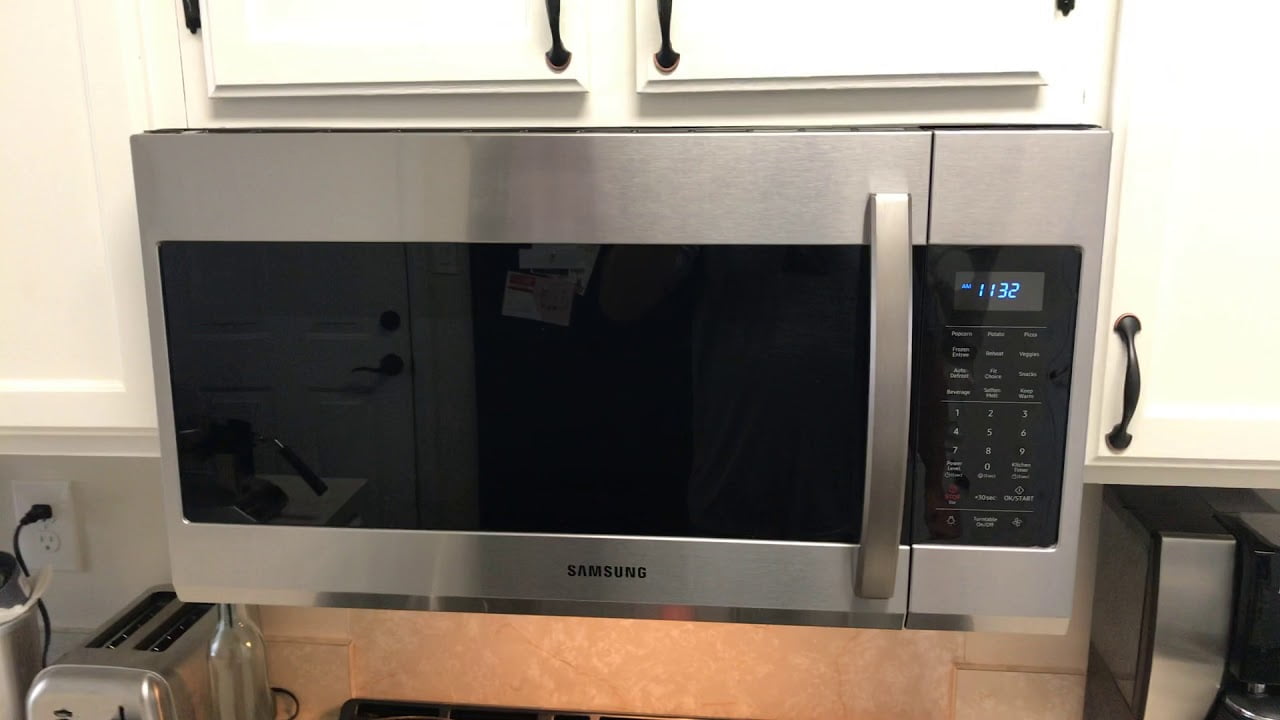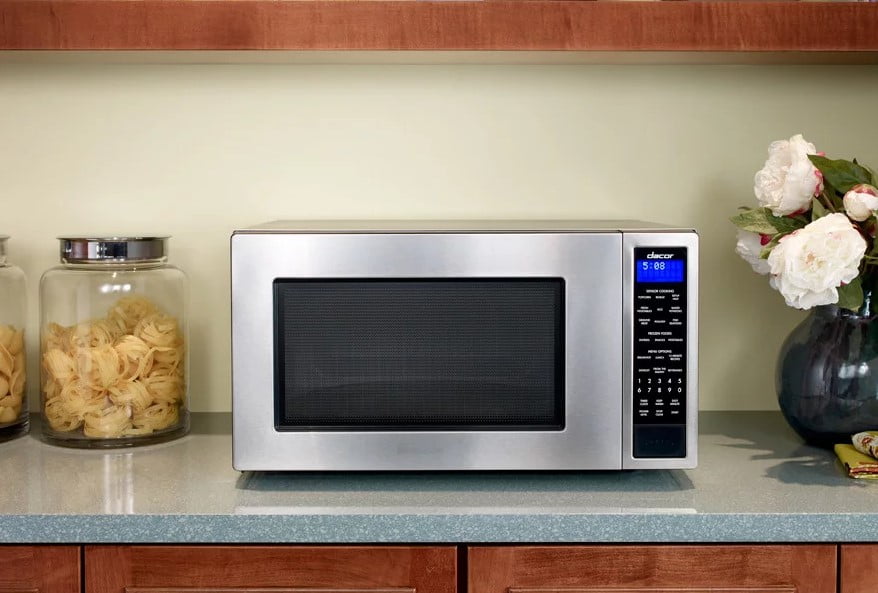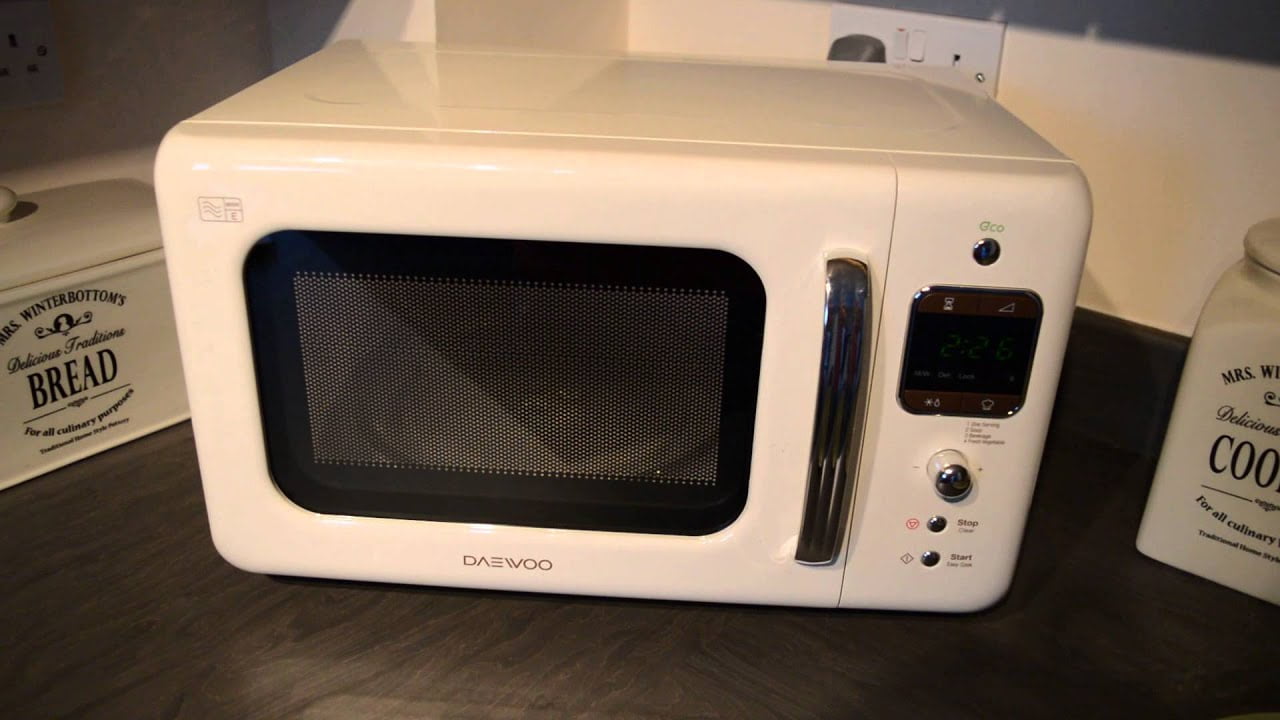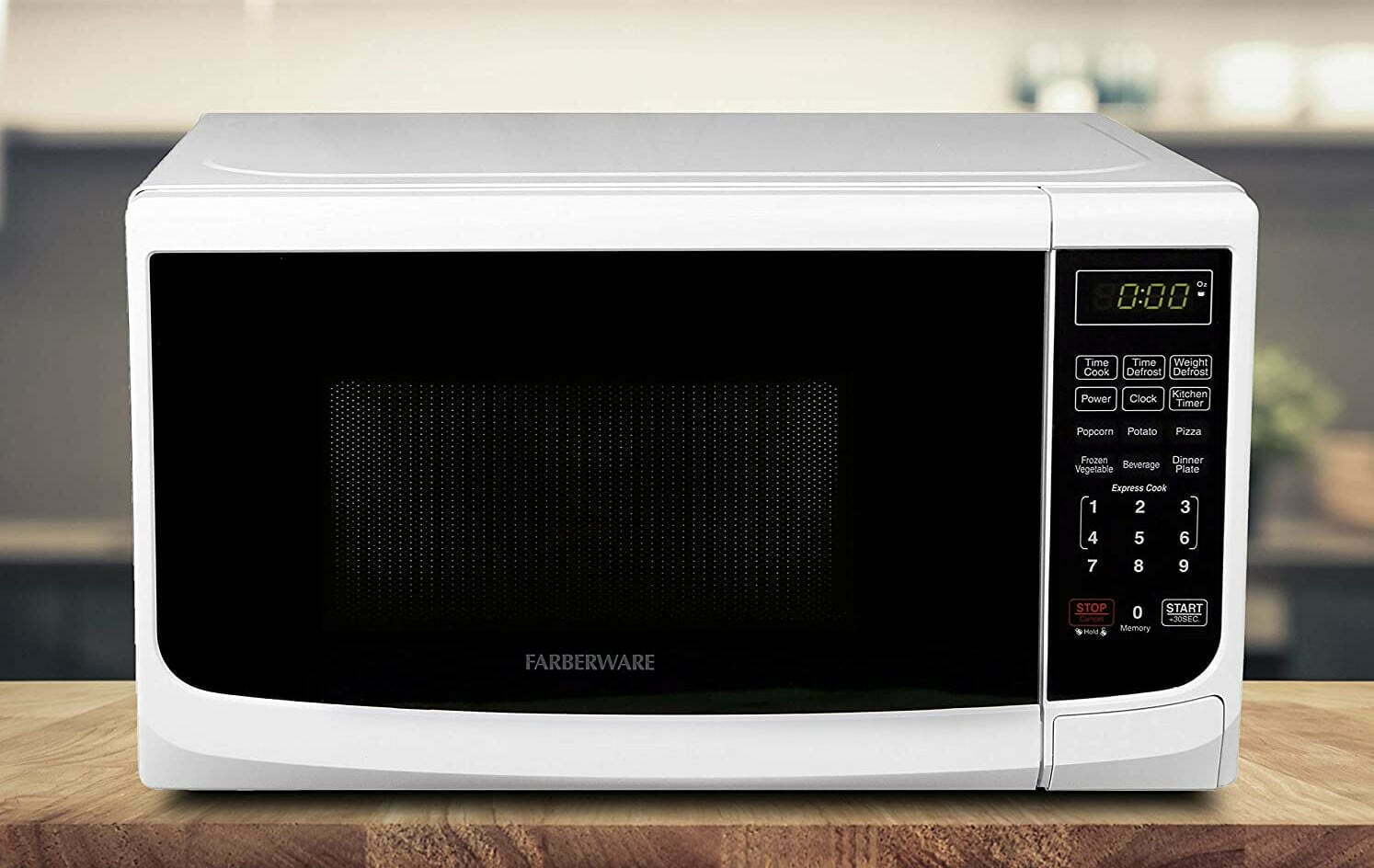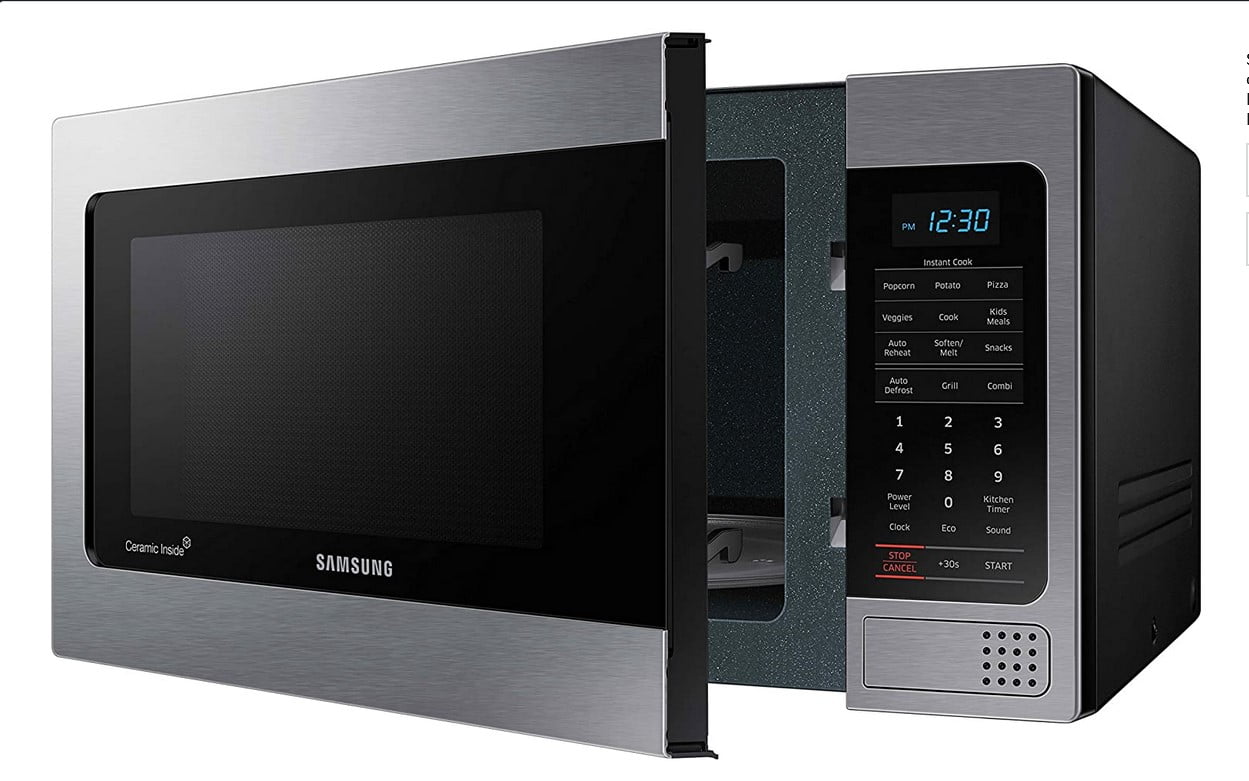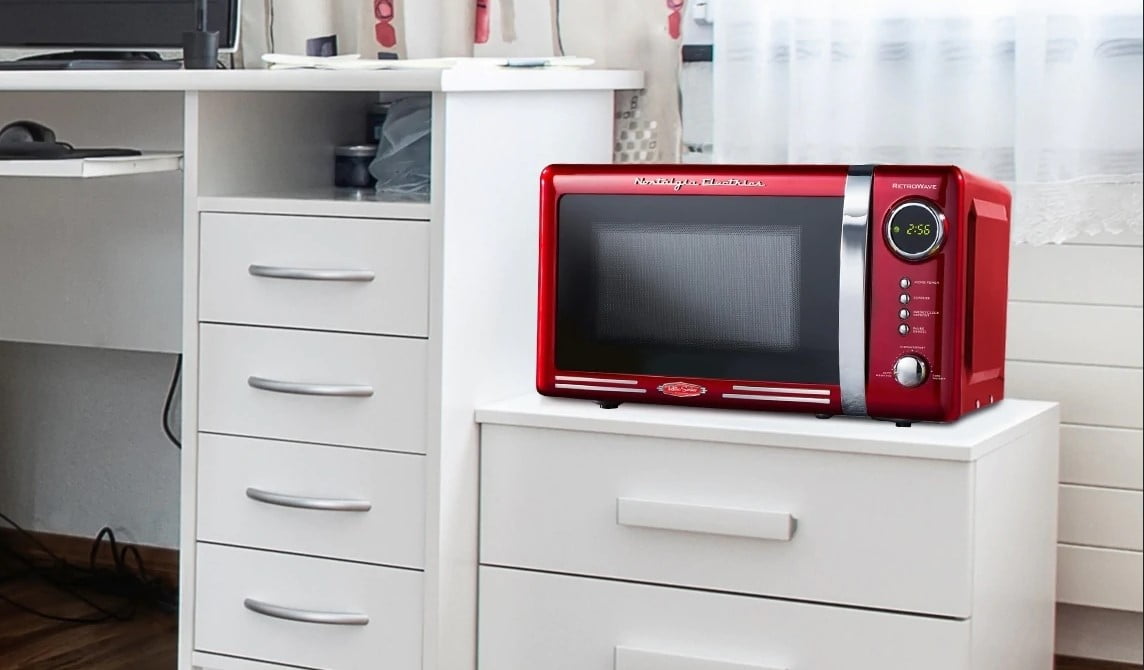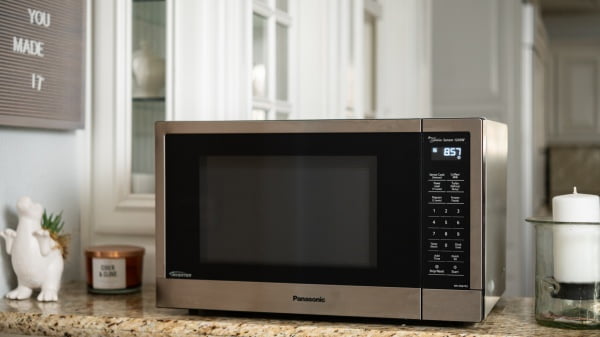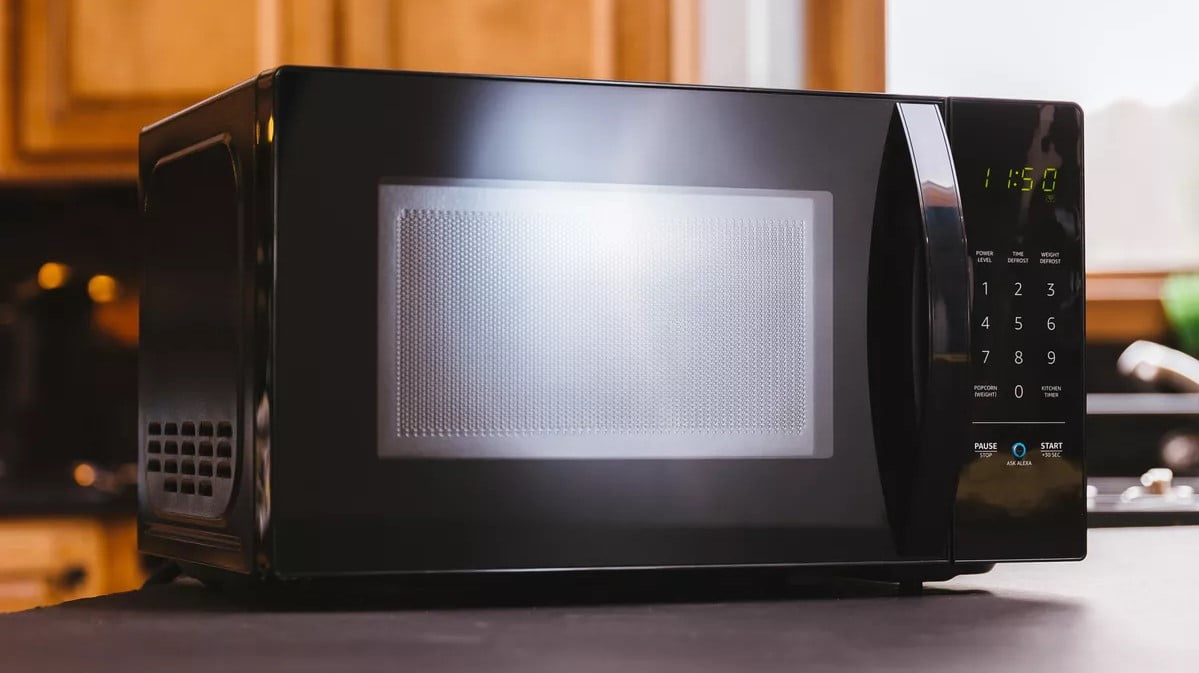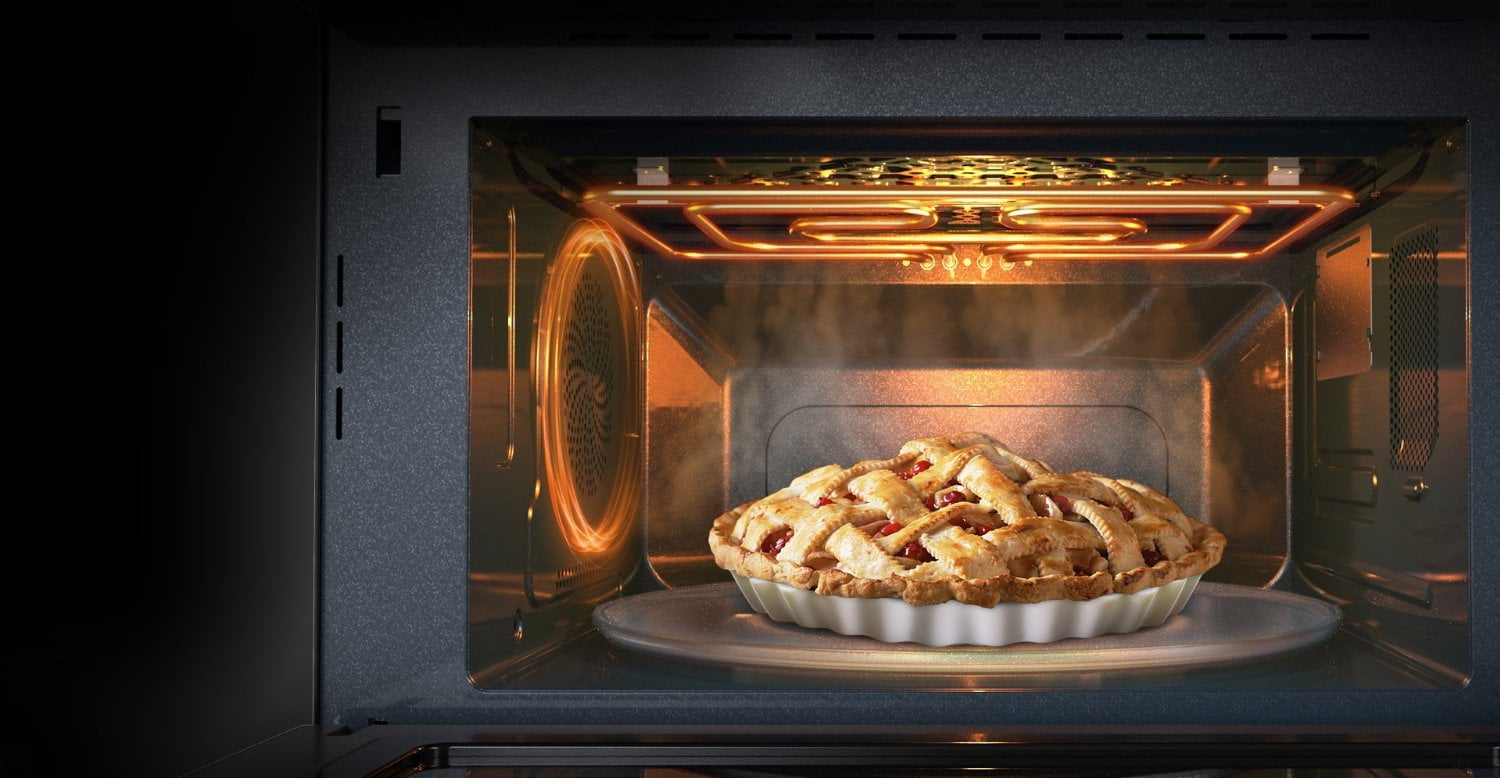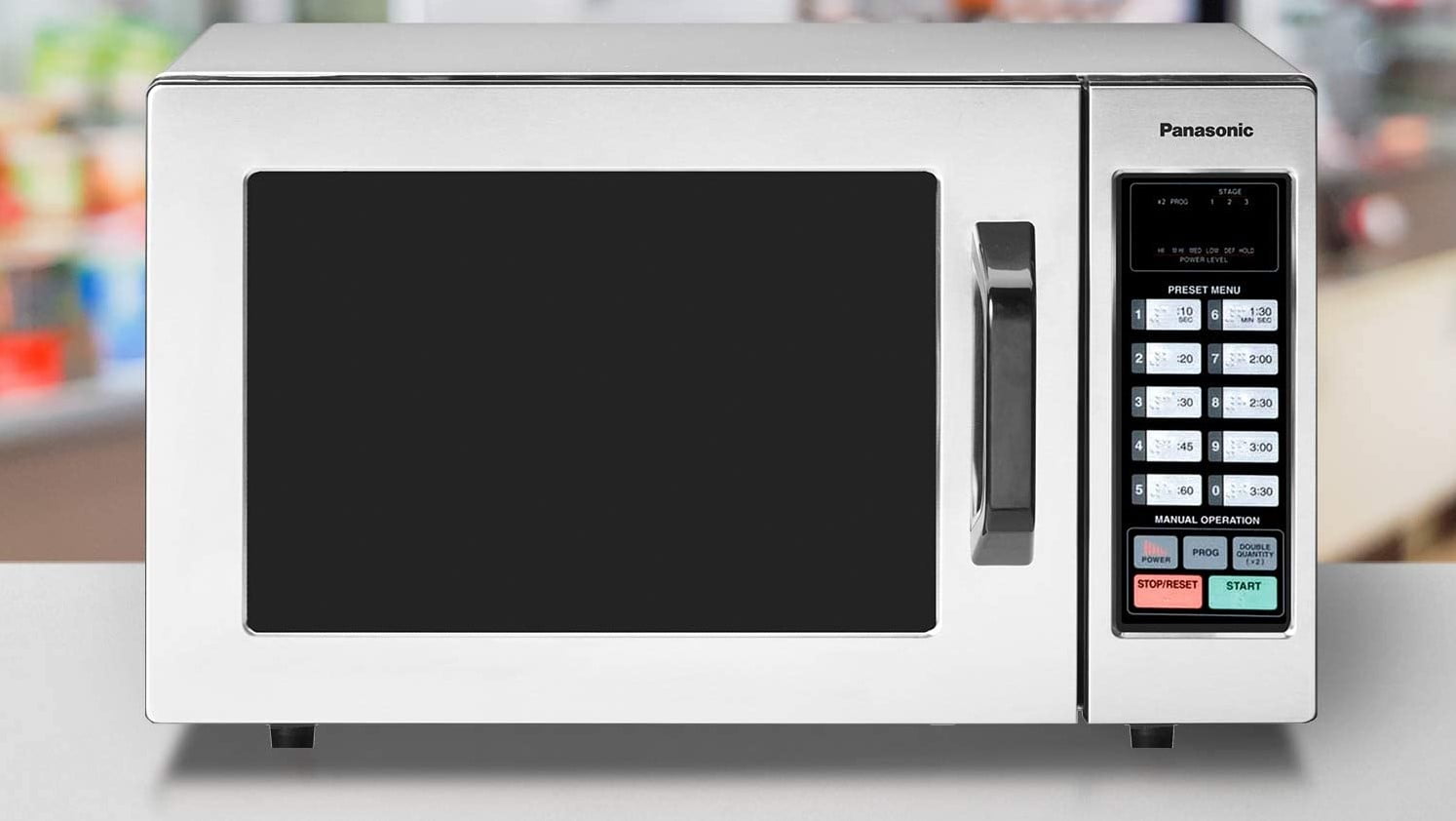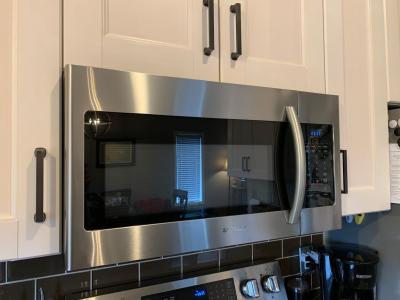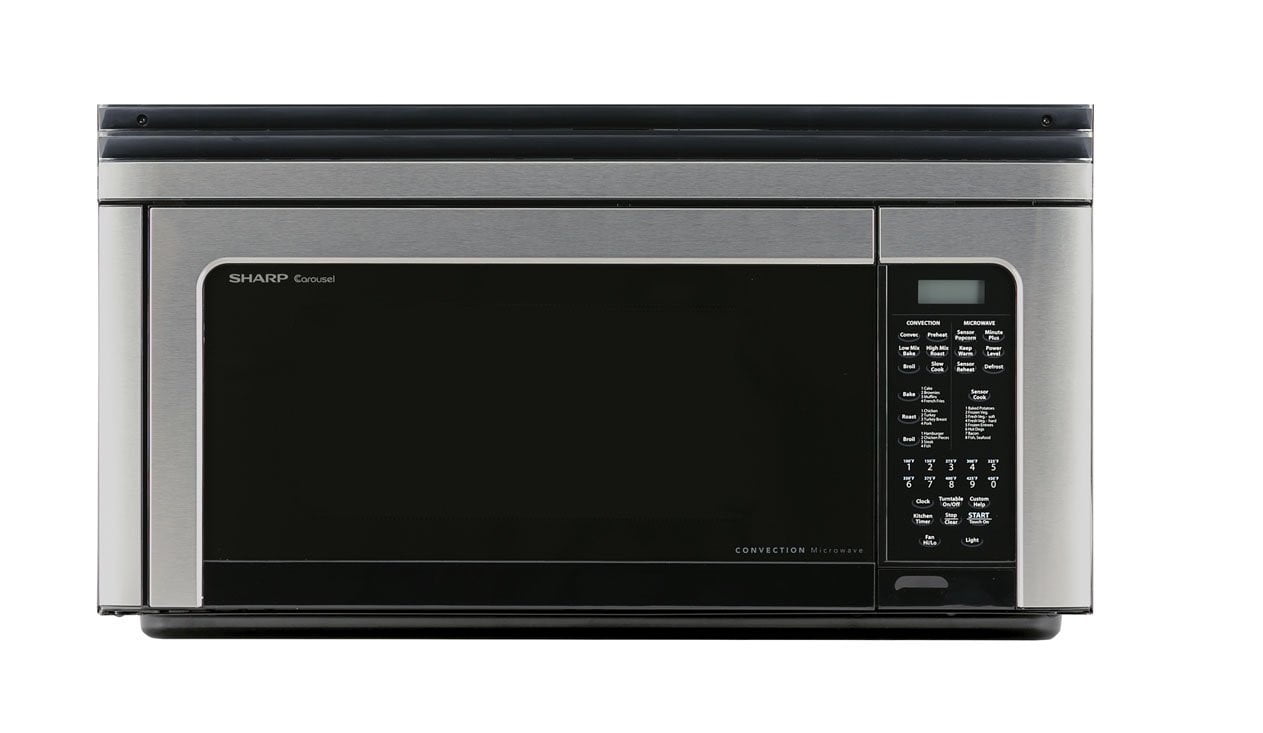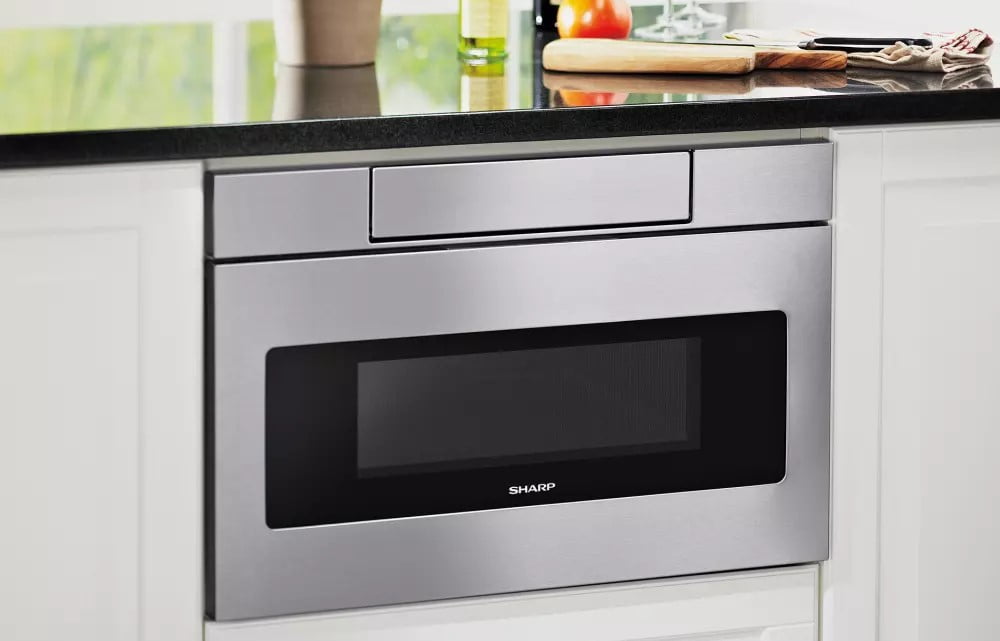If your microwave is making a crackling noise when not in use, you should find out whether you need repairs. Several reasons exist that cause microwaves to make weird noises, so consider each of these common problems. While you determine which reason applies to you and whether you can repair it yourself, consider whether the risks outweigh the savings. The best microwaves require less upkeep, and you should not take on any projects with which you are uncomfortable. If you think your turntable motor could be causing the noise, take a look at how to replace the microwave turntable motor.
KEY TAKEAWAYS:
- Never use a microwave with sound or light arcing.
- Popping, buzzing, and humming noises occur as a result of the types of food items you prepare or food spills.
- Do not try to repair anything that you aren’t sure you can repair.
Common Microwave Noises
You may notice your kitchen appliance making noise occasionally, whether it’s a microwave or fridge. Generally, these noises occur regularly and result from the operation of the device. However, you may want to find out what causes each noise, especially if you notice a new noise. You should reach out to a repairman if you experience loud noises or your microwave makes noise when you aren’t using it. Some common sounds that microwaves make include humming, buzzing, clicking, popping, or arcing. You may also be interested in “How do you Open a Sealed Envelope in the Microwave?”
Insider Tip
Cleaning your microwave, including the track and roller ring for your glass plate, helps reduce clicking noises.
Humming and Buzzing
Most sounds like humming or buzzing often result from the oscillation of its magnetron, the vent fan, fan motor, or any combination therein. Over time, this normal operation noise increases gradually. The oscillation occurs as the microwave oven heats, and the fan helps prevent overheating of mechanical components. If your microwave becomes significantly louder over a short period, you may need repairs. To check whether your issue comes from the magnetron, try running it on a lower power setting with food inside, causing it to turn on and off to maintain the desired temperature. The noise should be quieter if the problem is the magnetron.
Clicking Sounds
Your microwave may not contain a rotating plate, but some microwaves operate using a glass turntable or plate to rotate the food. This piece helps to maintain consistency in heating throughout your meal. However, this action can cause clicking sounds occasionally. Check whether your glass plate, roller ring, or track need to be cleaned if you frequently hear clicking. You easily wash these with soap and water, and you just may have forgotten to do so. The other option falls under the positioning of the plate, so check to see if the plate remains on track.
Popping
You may describe the noise of your microwave as a popping noise, crackling noise, or snapping noise as you prepare foods or after spilling food. However, these tones often result from the high water content or high-fat content of foods, especially sauces. Microwaves heat their contents through the use of microwave frequencies on water molecules inside the food, so this type of noise should be familiar. You test this element by cleaning the microwave completely and letting it dry. Then, take a bowl of water and run the microwave with the bowl inside. Contact a service center if you still hear the popping.
Electric Sounds
These types of sounds remain the most concerning when it comes to microwaves or other appliances. Typically, you hear buzzing, humming, and popping sounds frequently while running your device. However, if the product begins to emit an electric type of sound, called arcing, you replace your microwave. In addition to the sound, you may notice that your microwave energy flashes while in use. If this happens and you see a hole in the side or back of your microwave, stop using it because it has become dangerous.
Warning
Arcing in your microwave is dangerous, and you should contact a support center if you notice it.
F.A.Q.S
Why does a microwave oven plate make noise?
Microwave plates may need to be cleaned or realigned if they make noise while in use. If you hear a cracking noise from the plate, stop using the microwave.
Should a microwave be used if the outer glass is broken?
No, you should not continue using your microwave if there are holes in it. You should also unplug the microwave to ensure the capacitor is disconnected.
What does electrical arcing sound like?
Electrical arcing sounds similar to static on the TV, and it’s a pretty distinct sound. It sounds like exposed electricity.
STAT: If it is happening frequently, the track and roller ring may need to be cleaned, or positioned correctly. (source)
REFERENCES:
- https://flamingoappliance.com/microwave-repair/microwave-making-noises-top-5-reasons-why/
- https://www.samsung.com/us/support/troubleshooting/TSG01001968/
- https://products.geappliances.com/appliance/gea-support-search-content?contentId=17875r
- https://producthelp.jennair.com/Cooking/Microwaves/Over-the-Range_Microwave/General_Arcing_and_Sparking/General_Arcing_and_Sparking_-_Over-the-Range_Microwave
- https://www.lg.com/us/support/help-library/arcing-sparking-microwave-oven-CT00000303-1430169363778

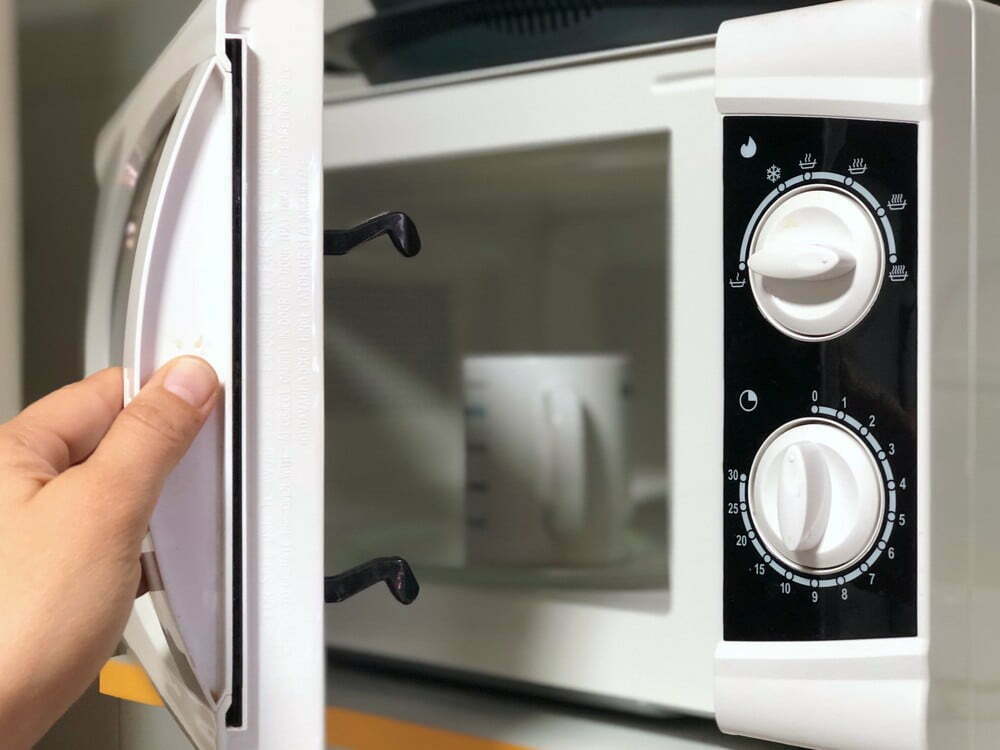













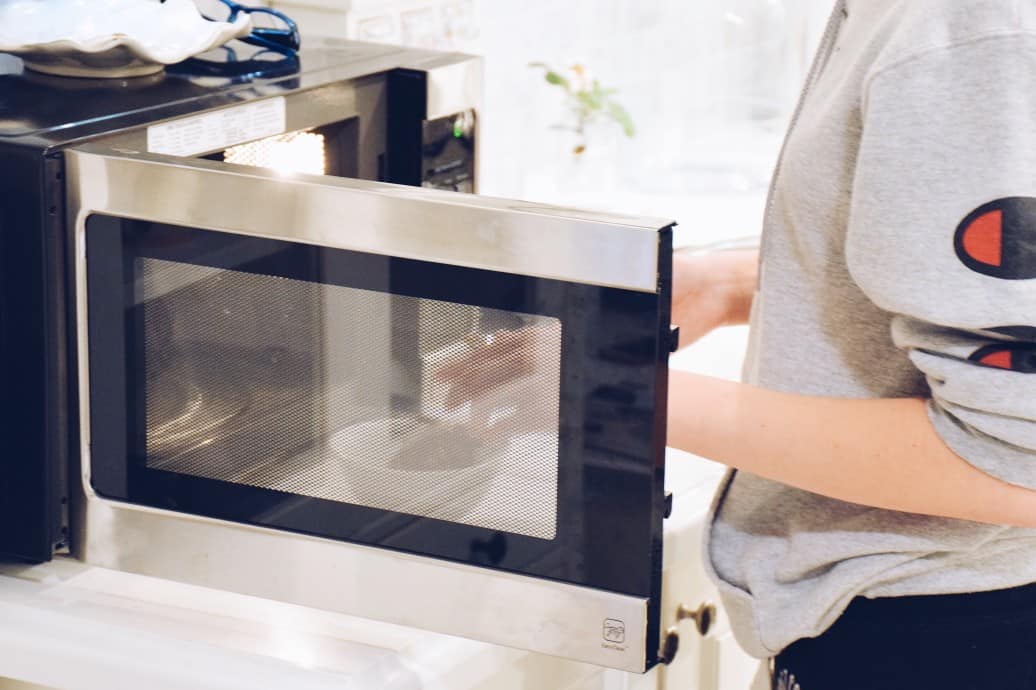
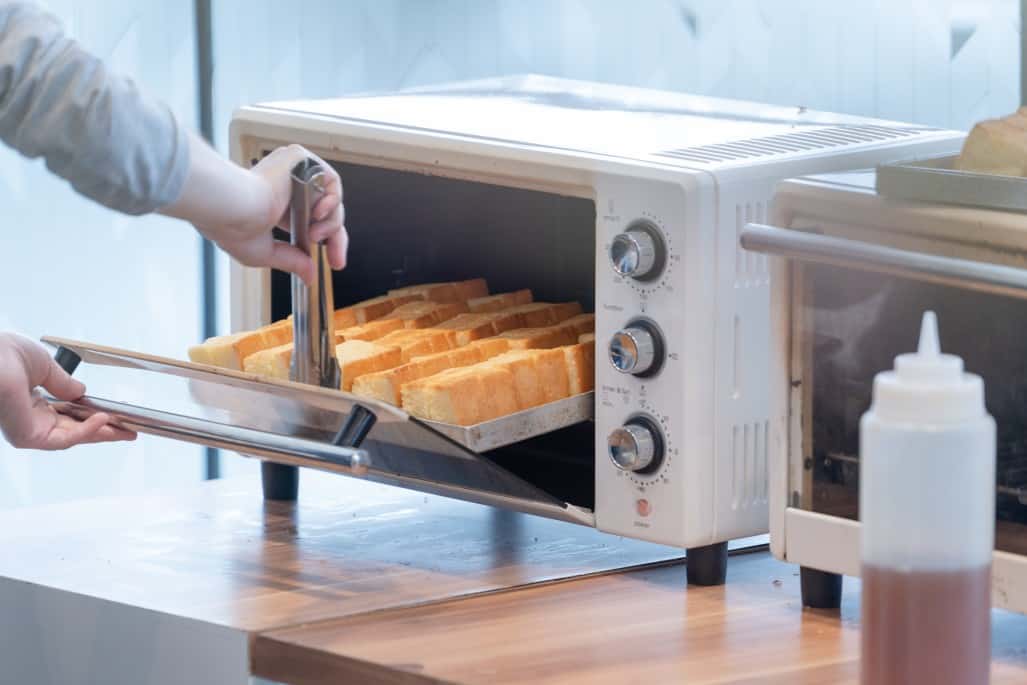
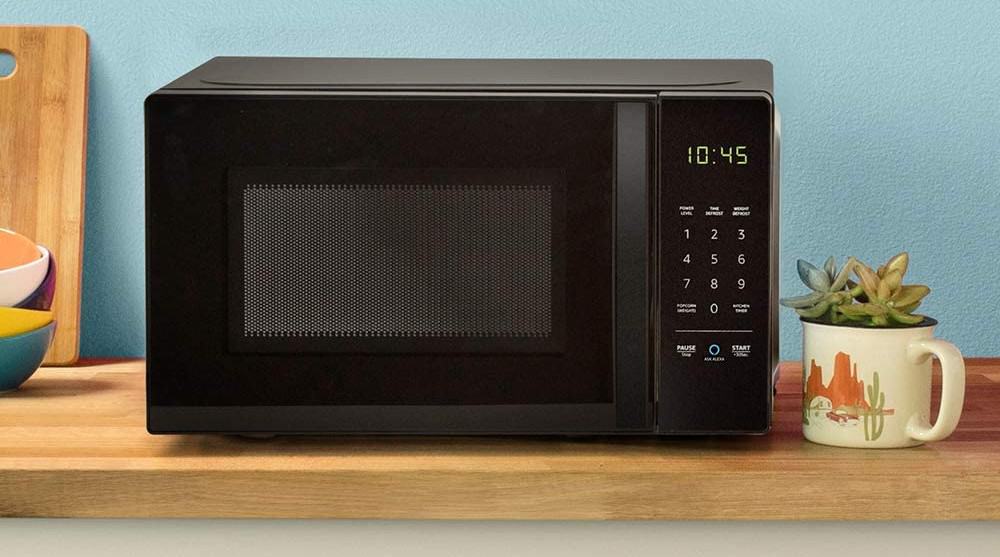

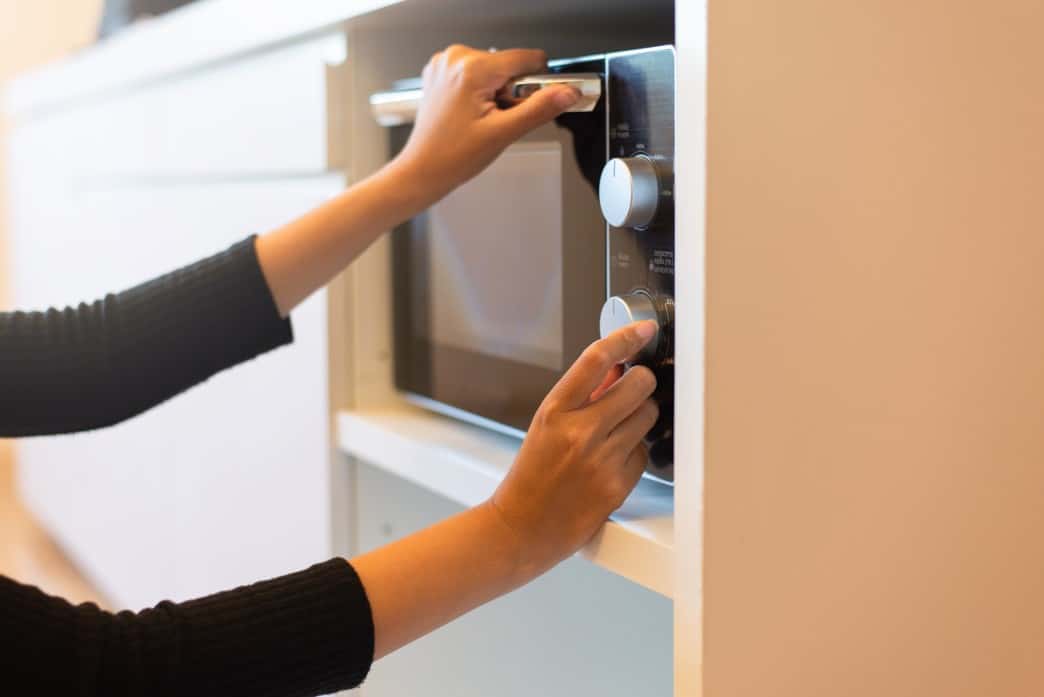
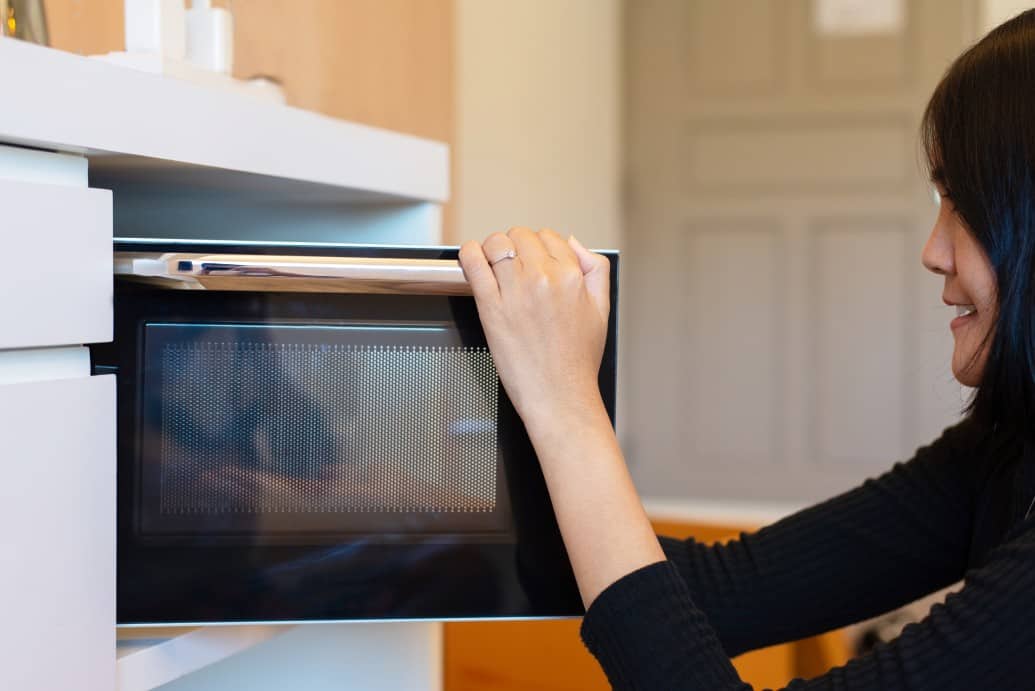
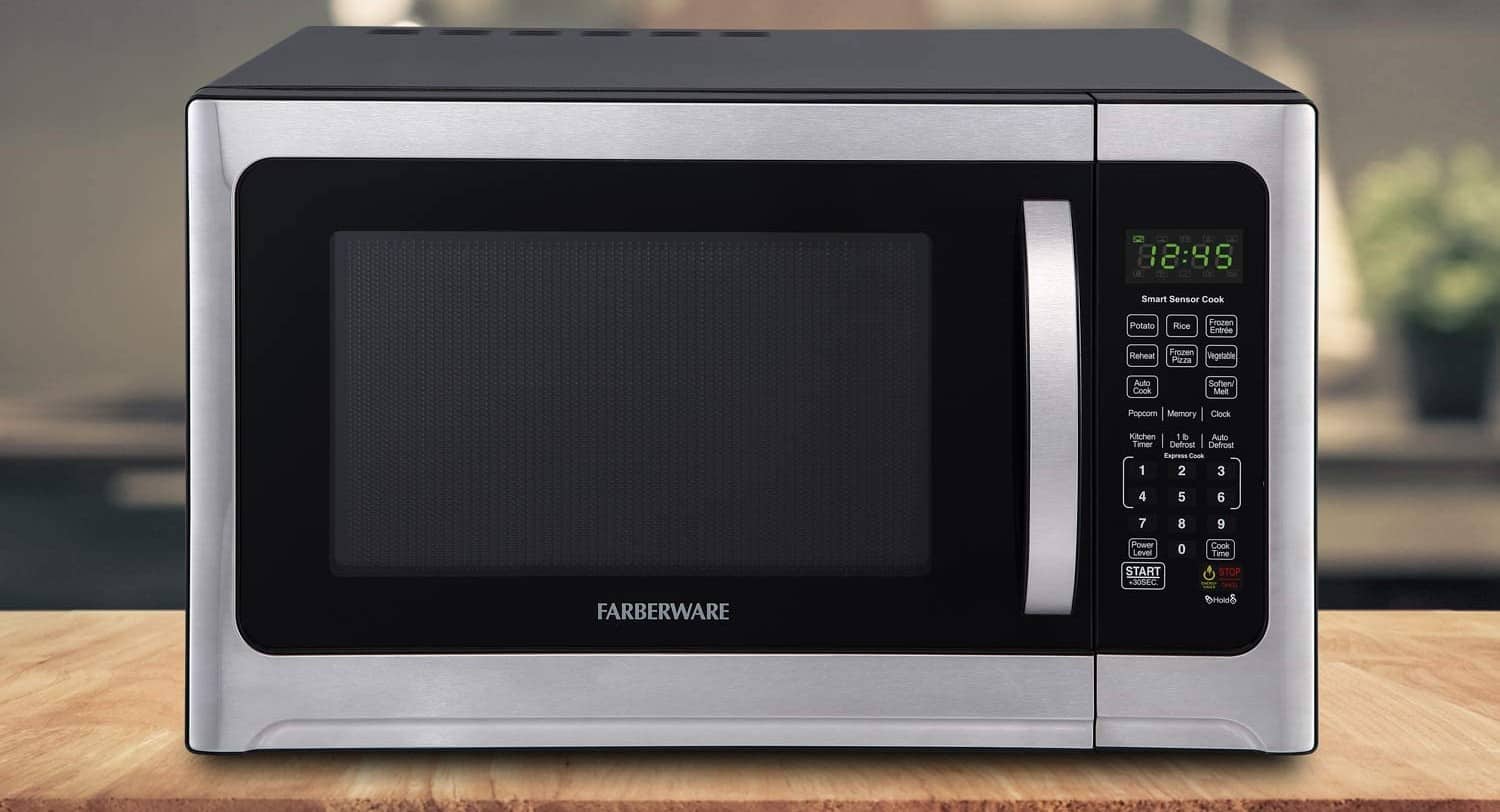
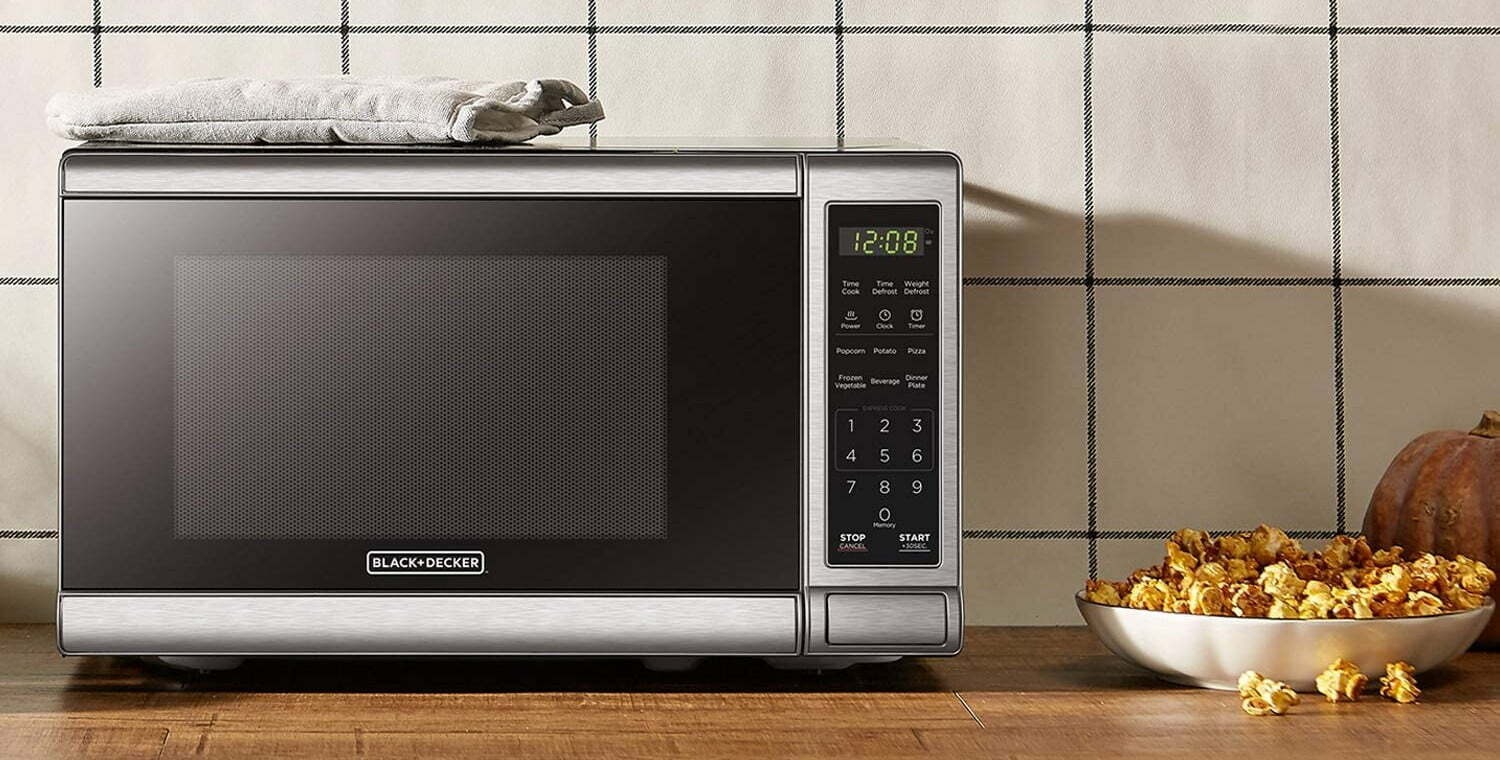
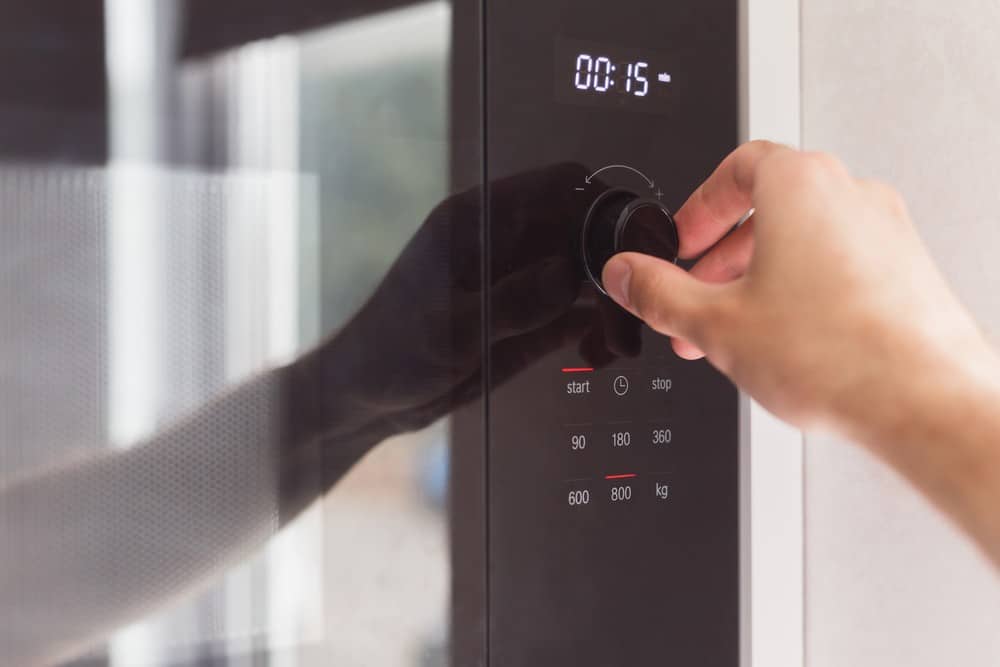
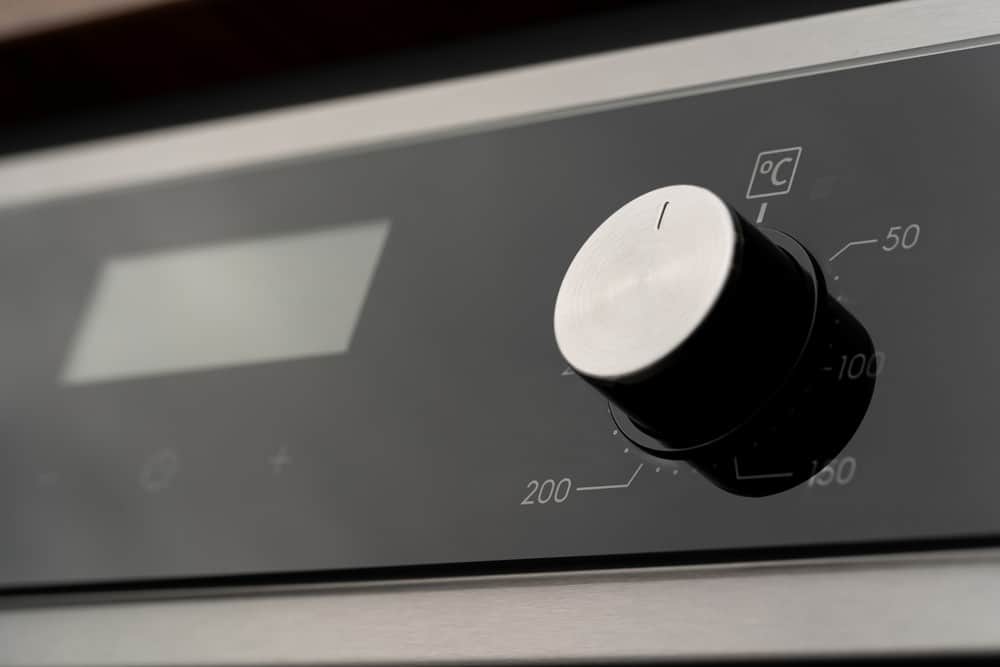
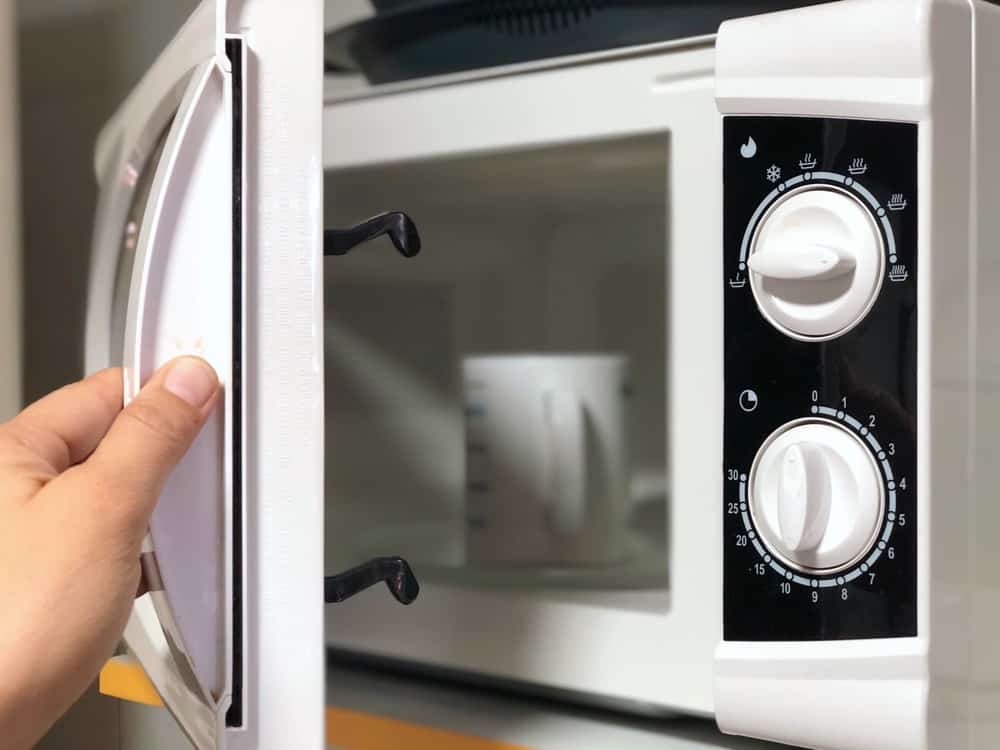

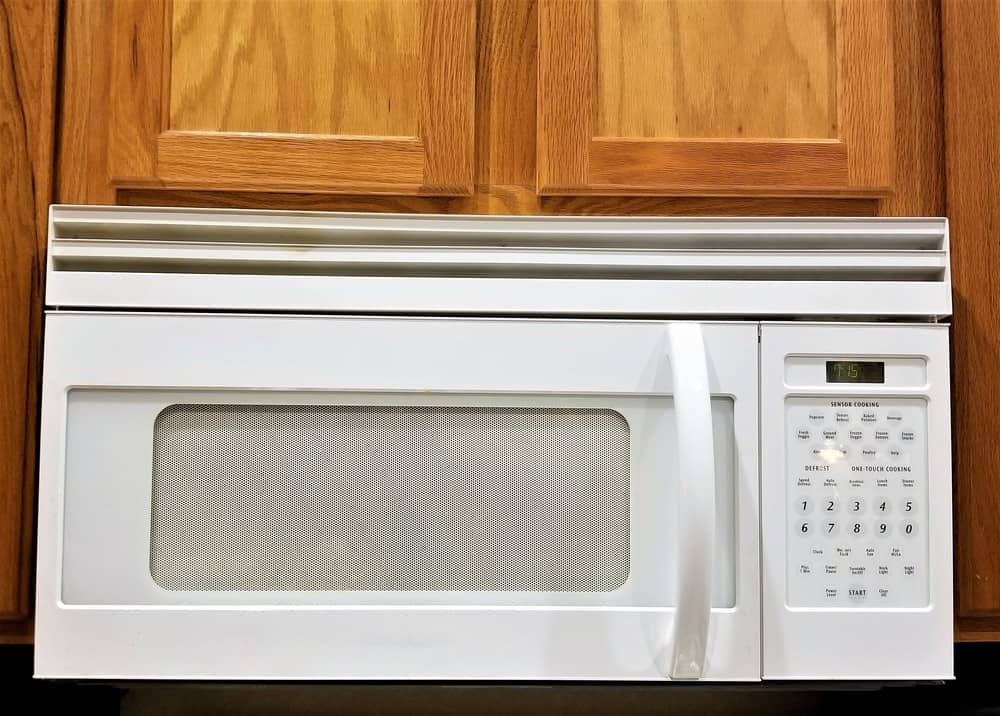
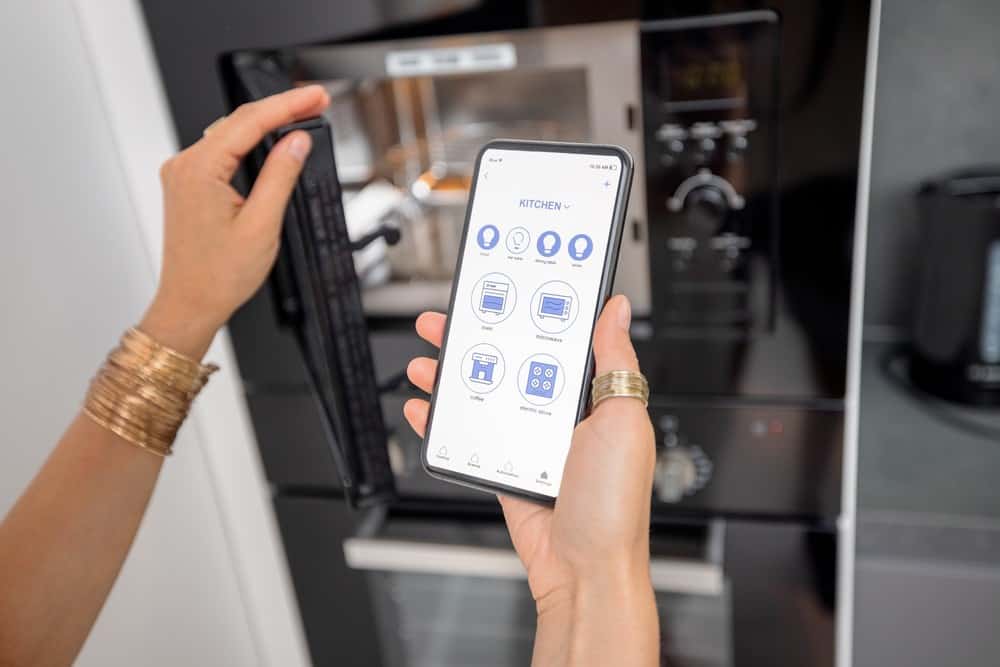

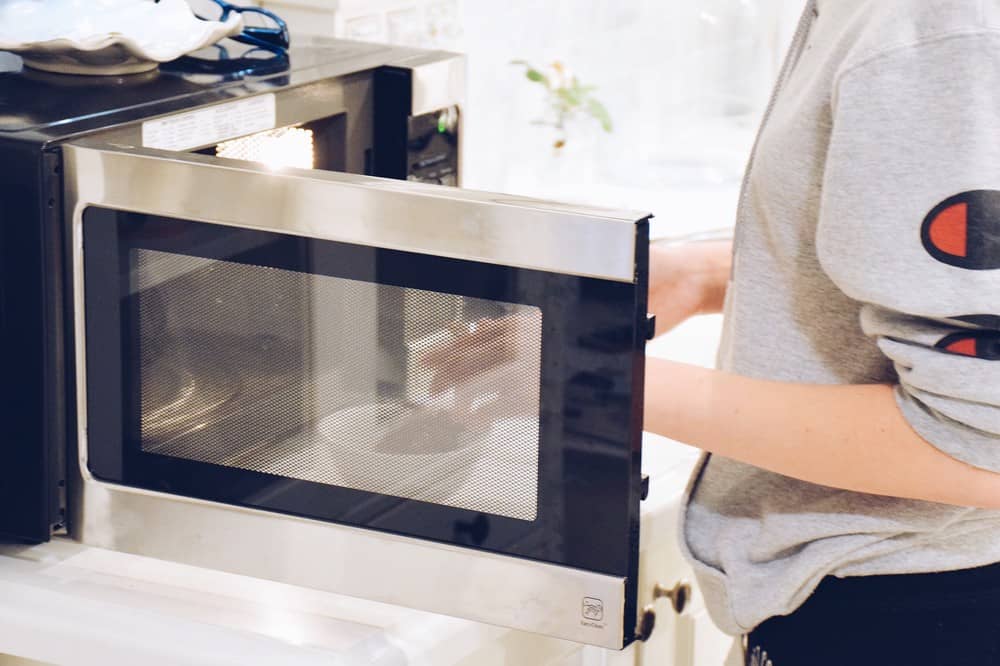

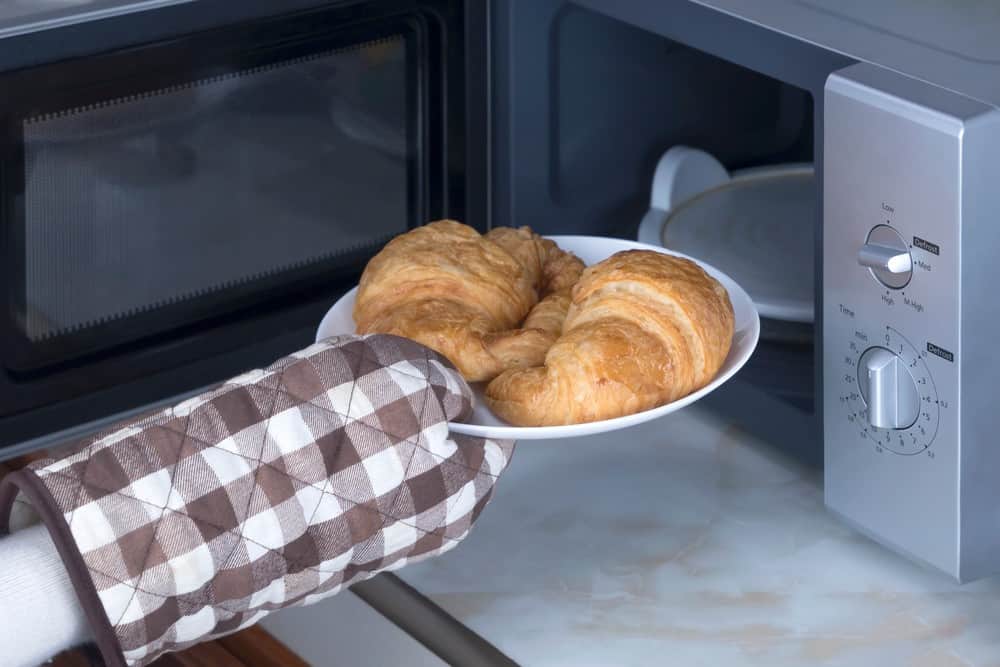
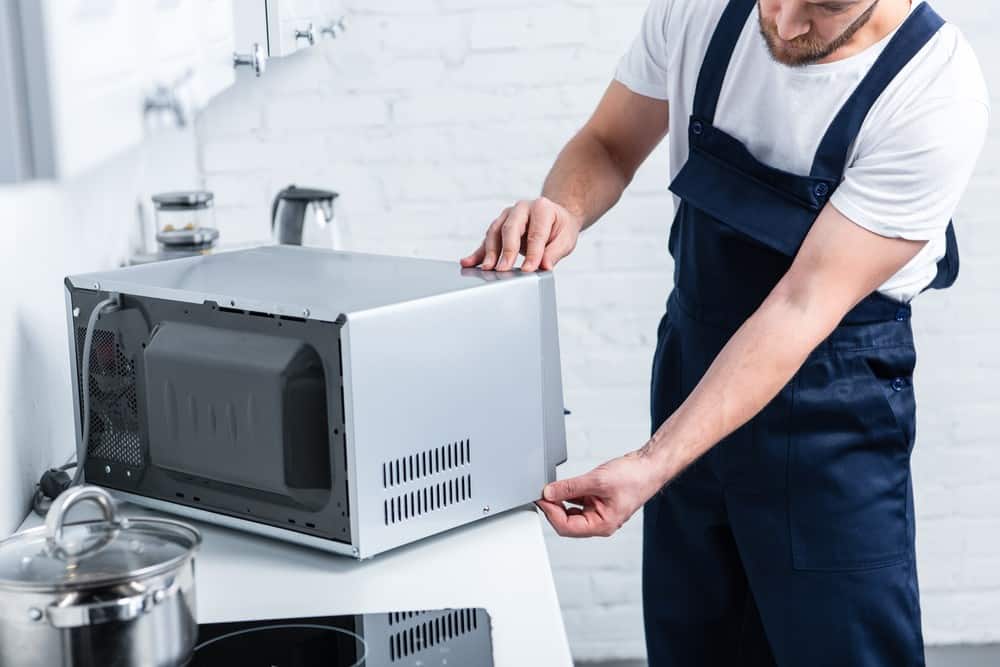
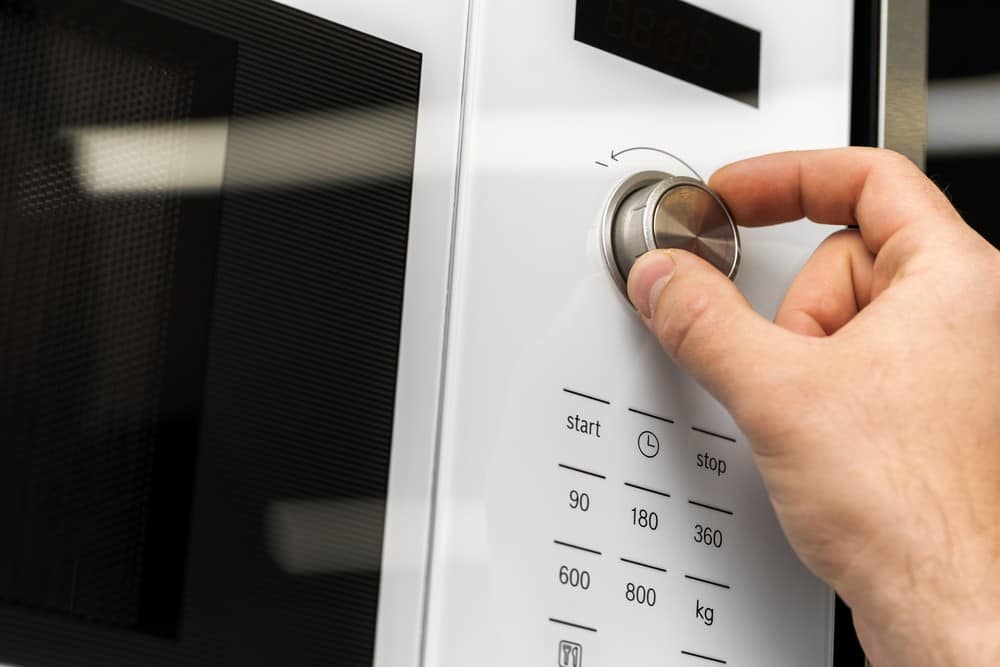
![Best Kitchen Appliances in [year] ([month] Reviews) 27 Best Kitchen Appliances in 2025 (December Reviews)](https://www.gadgetreview.dev/wp-content/uploads/best-kitchen-appliances.jpg)
![Best Whirlpool Microwaves in [year] 28 Best Whirlpool Microwaves in 2025](https://www.gadgetreview.dev/wp-content/uploads/best-whirlpool-microwaves-image.jpg)
![Best Microwave Drawers in [year] 29 Best Microwave Drawers in 2025](https://www.gadgetreview.dev/wp-content/uploads/best-microwave-drawer-image.jpg)
![Best Quiet Microwaves in [year] 30 Best Quiet Microwaves in 2025](https://www.gadgetreview.dev/wp-content/uploads/best-quiet-microwave-image.jpg)
![Best LG Microwaves in [year] 31 Best LG Microwaves in 2025](https://www.gadgetreview.dev/wp-content/uploads/best-lg-microwaves-image.jpg)
![Best Microwaves in [year] ([month] Reviews) 32 Best Microwaves in 2025 (December Reviews)](https://www.gadgetreview.dev/wp-content/uploads/best-microwaves-image.jpg)
![Best Over the Range Convection Microwaves in [year] 33 Best Over the Range Convection Microwaves in 2025](https://www.gadgetreview.dev/wp-content/uploads/best-over-the-range-convection-microwave-image.jpg)
![Best Retro Microwaves in [year] 34 Best Retro Microwaves in 2025](https://www.gadgetreview.dev/wp-content/uploads/best-retro-microwave-image.jpg)
![Best GE Microwaves in [year] 35 Best GE Microwaves in 2025](https://www.gadgetreview.dev/wp-content/uploads/best-ge-microwaves-image..jpg)
![10 Best Samsung Microwaves in [year] 36 10 Best Samsung Microwaves in 2025](https://www.gadgetreview.dev/wp-content/uploads/best-samsung-microwaves-image.jpg)
![10 Best Microwaves for Seniors in [year] 37 10 Best Microwaves for Seniors in 2025](https://www.gadgetreview.dev/wp-content/uploads/best-microwaves-seniors-image.jpg)
![10 Best Microwave Toaster Oven Combo in [year] 38 10 Best Microwave Toaster Oven Combo in 2025](https://www.gadgetreview.dev/wp-content/uploads/best-microwave-toaster-oven-combo-scaled-1.jpg)
![10 Best Panasonic Microwaves in [year] 39 10 Best Panasonic Microwaves in 2025](https://www.gadgetreview.dev/wp-content/uploads/best-panasonic-microwaves.jpg)
![10 Best Microwaves for College Dorms in [year] 40 10 Best Microwaves for College Dorms in 2025](https://www.gadgetreview.dev/wp-content/uploads/best-microwaves-for-college-dorms.jpg)
![10 Best Compact Microwaves in [year] 41 10 Best Compact Microwaves in 2025](https://www.gadgetreview.dev/wp-content/uploads/best-compact-microwave-image.jpg)
![10 Best Convection Microwave Ovens in [year] 42 10 Best Convection Microwave Ovens in 2025](https://www.gadgetreview.dev/wp-content/uploads/best-convection-microwave-oven-image.jpg)
![10 Best Built In Microwaves in [year] 43 10 Best Built In Microwaves in 2025](https://www.gadgetreview.dev/wp-content/uploads/best-built-in-microwave-image.jpg)
